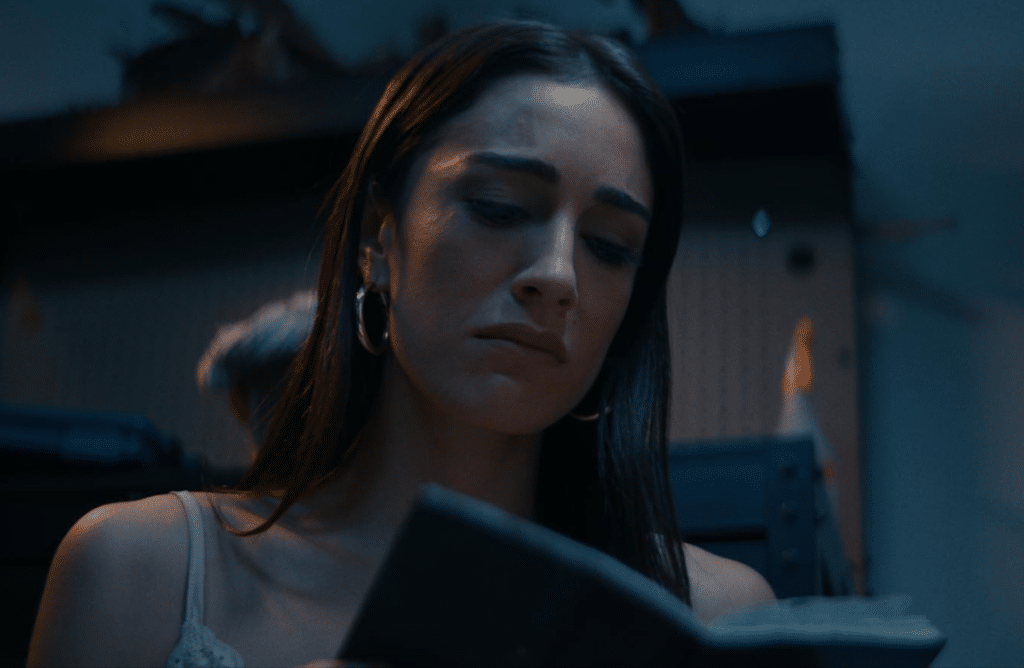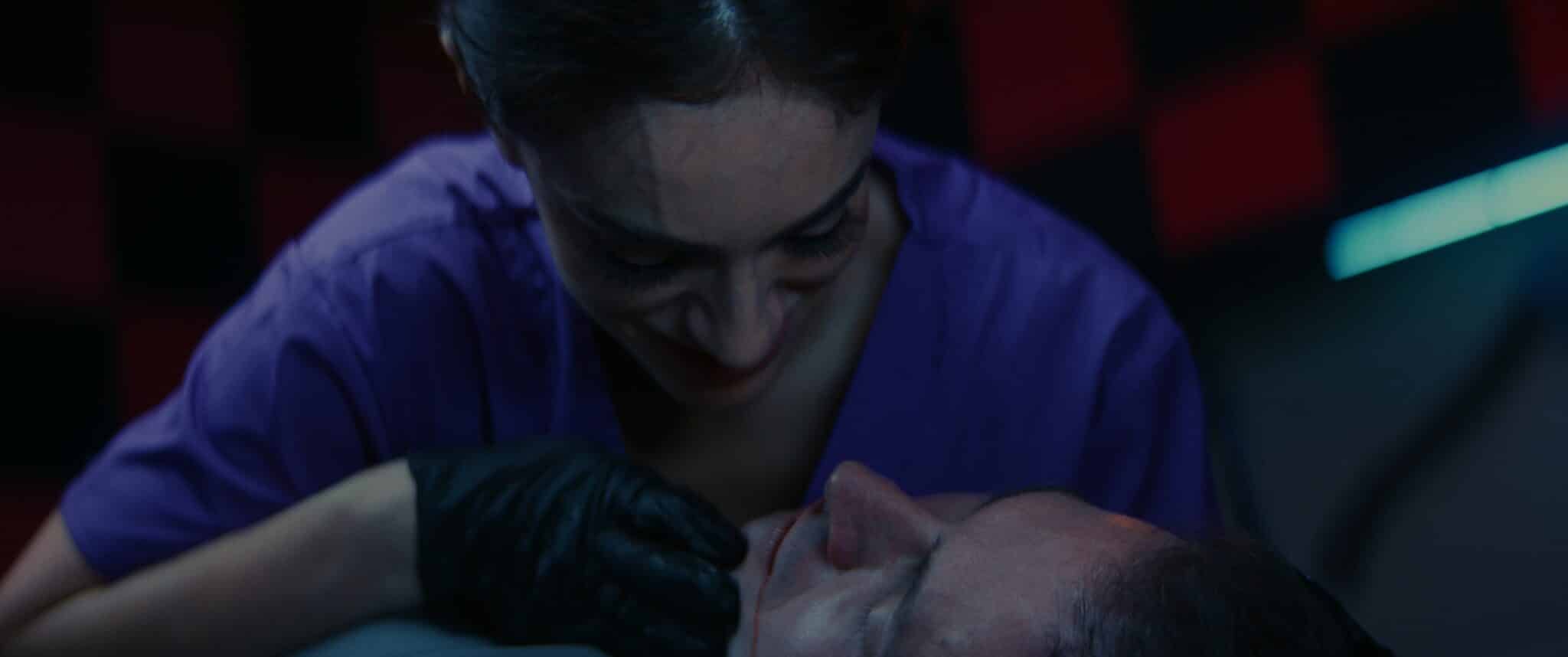
A genre-splicing look at broken people and relationships, The Seductress From Hell has a wealth of creative visual ideas, but its rather flustered approach to storytelling (and its script issues) do unfortunately hamper the film’s overall success. In essentials, this is a revenge flick – albeit some of the targets are more collateral than anything else. Along the way, we get other narrative ideas being tantalised but not always developed more fully, leading to some issues in terms of focus, clarity and tone.
The film is set in Los Angeles, and boy, does it make that clear throughout. We start at 2am, and there’s a couple in bed – which turns out to be husband and wife Robert (Jason Faunt) and Zara (Rocio Scotto). Our first acquaintance with Zara is as she sneaks out of bed, down to the garage to get a mysterious box out of a lock-up. Inside is some occult paraphernalia, including a notebook filled with Satanic scrawls and artwork: you know exactly what these look like without laying eyes on them. Satan isn’t very often represented via Impressionism. As the opening credits roll, we see Zara flicking through the pages of the book. But, post credits, we’re at the breakfast table. It’s not long before we’re shown in no uncertain terms that Robert is not a very nice guy. He berates Zara for her lack of acting work; she vocal-fries her way through a ream of apologies. But she’s waiting on a call-back; unfortunately, when Robert the bully leaves the house to go to his soul-crushing sales job, Zara retaliates by knocking back a handful of pills, passing out and missing the all-important call.
She lies about this to Robert at dinner, but thankfully there’s an upcoming distraction: old friend Derek (Raj Jawa) and his girlfriend Maya (Kylie Rohrer) are coming to dinner the following night. (We check in with them too and they’re not exactly looking forward to it: awkward dinner date incoming!) It’s a disaster, we see more of the kinds of treatment Zara has to ensure, and it’s all enough to trigger a late night visit to the lock-up with the Satanic sketchbook; she also picks up some chloroform, a few tools and – as luck would have it – some surgical scrubs.
Zara is now set on a new phase as a torturer and enthusiastic amateur surgeon; the set-up in the impromptu surgery shifts the film from being reminiscent of the famous-at-all-costs Starry Eyes to being a little more reminiscent of the surgery-as-penance movie American Mary, but there’s also a few hints and clues regarding just how much of all of this is pure fantasy, or at least, not quite unfolding as it seems to be, which keeps the viewer questioning the ensuing events. However, it’s to Scotto’s credit that she’s able to turn in an increasingly spirited performance, going from terrified victim to easeful aggressor and back again (as the film experiments with fantasy and flashbacks in places, too).
So what’s the problem? In a nutshell, it’s this: The Seductress From Hell spells out a lot of things we could assume, glean or accept quite readily without being told, whilst dodging some of the key details which we could really do with knowing. It paints in incredibly broad strokes; its important themes (Hollywood! Capitalism! Gender!) are represented by repeated, overblown mentions in a script which really needed a solid, uncompromising edit. No one talks like this, in such long, complex, grammatically accurate sentences loaded with abstract nouns – not in informal settings, anyway. It occurred to me that this may have been a deliberate symbolic decision; the script could be some way of addressing the scripted, unreal nature of our lives – or something like that. But I’m not so sure; this script tells us in such detail who and what is ‘good’ and ‘bad’ that it loses a lot of its plausibility, something which is still needed, even in a film with fantasy elements. And yet, the Satanic content is barely mentioned; it creeps in, rather than being properly introduced, then it becomes integral to the plot, for reasons unexplained.
Perhaps a stylistic decision to either go for the arty and experimental, or full-on Satanic horror, would have focused the film more successfully; in either case, the film’s themes and ideas could have emerged without needing to be explained to the audience as they have been here. For all that, though, there are some interesting and engaging visuals, and finally we have some Euro trance music assuming its rightful place in a kill scene.
